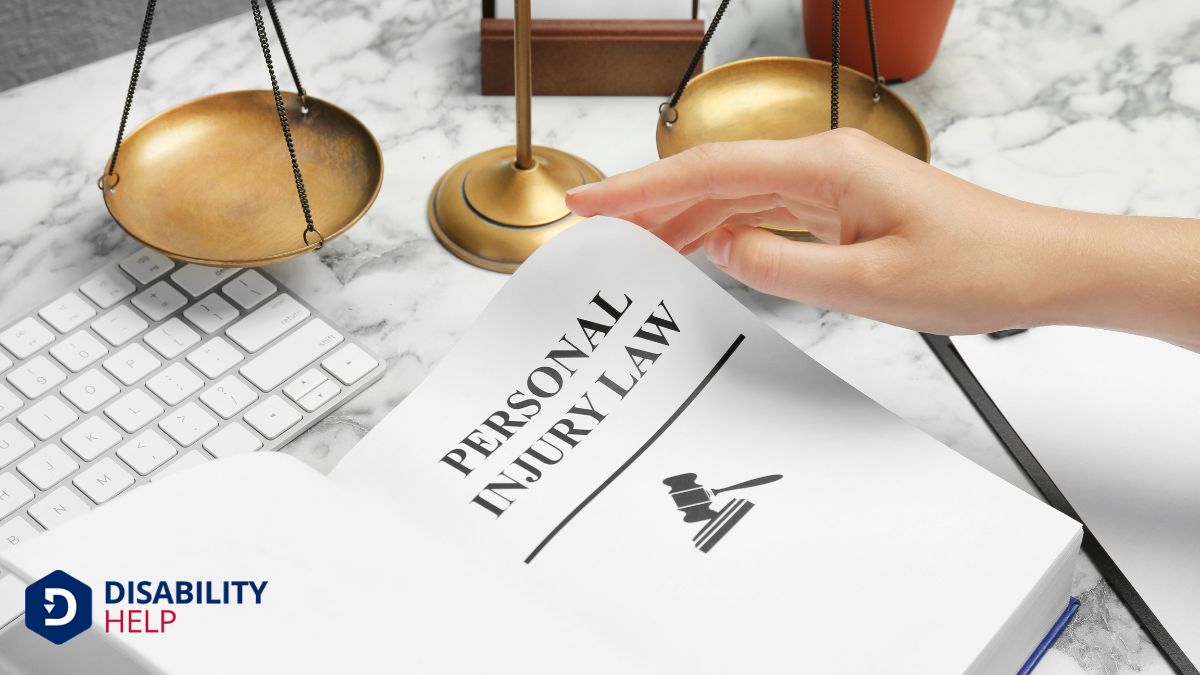When we think about personal injuries, the question of how long we have to report them often comes to mind. It's not just about knowing the rules; it's about ensuring we're doing everything right to protect our rights. The timeframe can vary widely depending on the type of injury and where it occurred. Let's explore the specifics, so you know exactly what's required to preserve your claim and avoid any potential pitfalls.
Key Takeaways
- The statute of limitations for personal injury claims varies by state, typically ranging from one to six years.
- Different types of injuries have specific reporting timeframes, such as workplace injuries requiring immediate employer notification.
- Car accidents should be reported to insurers within 24 hours, with state-specific regulations also applicable.
- Prompt reporting of slip and fall incidents is crucial for evidence preservation and rights protection.
- Missing reporting deadlines can result in losing the right to legal action and compensation.
Understanding the Statute of Limitations

When we talk about personal injury claims, understanding the statute of limitations is essential. It’s the timeframe within which we must file a lawsuit after an injury occurs. Missing this deadline can lead to the dismissal of our case, regardless of its merits. Each state sets its own statute of limitations, often ranging from one to six years.
We should act quickly to preserve our right to seek compensation. Gathering evidence, contacting witnesses, and consulting with a legal professional early guarantees we stay within the legal timeframe.
While it might seem overwhelming, knowing these deadlines empowers us to make informed decisions. Let’s not wait until it’s too late; understanding and acting within the statute of limitations can be the key to our claim's success.
Types of Personal Injuries and Reporting Timeframes
While understanding the statute of limitations lays the groundwork for personal injury claims, knowing the types of injuries and their specific reporting timeframes is equally important.
Different injuries come with distinct timelines for reporting. For instance, workplace injuries often require immediate notification to employers, sometimes within 24 hours, to guarantee compensation eligibility.
In contrast, car accidents typically allow for a bit more time, but prompt reporting to insurers is essential for preserving evidence and claims integrity.
Medical malpractice cases can be trickier, as injuries may not be apparent right away. Here, the timeframe might start from the discovery of the injury rather than the incident date.
Let's be proactive about understanding these nuances, making sure we report injuries within the correct timeframe to protect our rights.
Differences in State Laws
State laws play an essential role in determining the specifics of personal injury reporting, and it's imperative for us to be aware of how these can differ across the U.S. Understanding these differences helps us make informed decisions.
Here's a breakdown of what to keep in mind:
- Statute of Limitations: Each state sets its own time limit for filing a personal injury claim. It can range from one to six years.
- Comparative Fault Rules: Some states follow a "modified" system where our compensation might be reduced based on our percentage of fault.
- Damage Caps: Certain states limit the amount of damages we can recover in a personal injury case.
- Reporting Requirements: States may have specific procedures for notifying the responsible party or authorities.
Knowing these variations empowers us to act wisely.
Reporting Timeframe for Slip and Fall Incidents
Slip and fall incidents demand swift action when it comes to reporting. We must understand the importance of acting quickly to guarantee our rights are protected.
Generally, the time to report a slip and fall can vary depending on where the incident occurred. If it happens on private property, notifying the property owner or manager as soon as possible is essential. This step helps document the incident and begins the process of seeking compensation if needed.
In public spaces, we should promptly report the incident to the relevant authorities. Waiting too long could weaken our case, as evidence like surveillance footage or witness accounts may become unavailable.
Timely reporting strengthens our position, assuring we have the best chance to resolve our claim effectively.
Car Accident Reporting Requirements
Let's talk about the essentials of reporting a car accident, focusing on time limits, documentation, and legal consequences.
We need to act quickly since many jurisdictions have strict deadlines for reporting accidents.
Time Limit Regulations
When it comes to car accident reporting requirements, understanding the time limits is essential for ensuring we're in compliance with legal obligations. Each state has its own regulations, but there are commonalities that we should be aware of:
- Immediate Notification: We should report the accident to the police as soon as it's safe to do so. This is vital for an official record.
- Insurance Notification: Our insurance company typically requires us to report the accident within 24 hours to start the claims process.
- State-Specific Timelines: Some states mandate reporting within a specific number of days, such as 5 or 10, depending on the severity.
- Statute of Limitations: For personal injury claims, the time limit can range from 1 to 3 years, varying by jurisdiction.
Required Documentation Details
Understanding the time limits is just one part of effectively handling a car accident situation; another critical aspect involves gathering the right documentation.
We need to verify we've all necessary paperwork ready to support our personal injury claim. Start by collecting the police report, as it provides an official account of the accident.
Don’t forget medical records detailing any injuries sustained and treatment received. Photos of the accident scene, vehicle damage, and visible injuries can strengthen our case.
Witness statements offer additional perspectives, so gather those if possible. Finally, keep all correspondence with insurance companies and any receipts for related expenses.
Having these documents organized not only clarifies our situation but also builds a solid foundation for any future claims.
Legal Consequences Overview
Although car accidents can be distressing, it’s important to understand the legal requirements for reporting them. By knowing these requirements, we can avoid potential legal consequences and guarantee compliance.
Here’s a quick overview of what we need to do:
- Immediate Reporting: Most states require us to report accidents to law enforcement immediately, especially if there are injuries or significant property damage.
- Time Limits: We should file an insurance claim within a specific period, often ranging from 24 hours to several days post-accident.
- Accurate Information: Provide accurate and complete details when reporting to authorities and insurance companies.
- Failure to Report: Not reporting can lead to fines, license suspension, or difficulties in filing claims later.
Workplace Injury Reporting Deadlines
Maneuvering workplace injury reporting deadlines can be essential for both employees and employers. When an injury occurs at work, we need to report it promptly to guarantee proper care and avoid complications. Most states require reporting within a specific timeframe, often 24 to 72 hours.
We must notify our supervisor or manager as soon as possible to start the process. This prevents delays in receiving benefits or medical treatment and helps employers meet their legal obligations.
Employers are usually responsible for filing a formal report with their workers' compensation insurance. If we don’t report an injury within the designated period, we might face challenges in claiming compensation later.
Understanding these deadlines helps protect our rights and guarantees a smoother recovery process.
Exceptions to Standard Reporting Periods
While standard reporting periods for workplace injuries are important, there are exceptions that might allow for extended timeframes. Understanding these can be critical for anyone dealing with a personal injury.
Here are some scenarios where exceptions might apply:
- Delayed Onset of Symptoms: Sometimes, symptoms don't manifest immediately. Medical evidence proving the delay might grant more time.
- Employer’s Knowledge: If an employer already knew about the injury, they might be deemed informed despite formal delays.
- Incapacitation: Severe injuries preventing timely reporting can lead to exceptions, provided there's proof of incapacitation.
- Minors and Legal IncapacityA legal term indicating that an individual lacks the ability to make decisions for themselves, often...: Injuries involving minors or those legally incapacitated might allow parents or guardians to report later.
Each situation is unique, so it's essential to consult with a professional to understand specific rights and options.
Consequences of Missing the Reporting Deadline
Missing the reporting deadline for a personal injury can have serious repercussions, potentially affecting our ability to claim compensation or benefits.
When we fail to report on time, we might lose the right to pursue legal action, leaving us without financial support for medical expenses or lost wages.
Insurance companies and courts often view missed deadlines unfavorably, potentially dismissing our claims entirely.
If we can't provide a valid reason for the delay, like being incapacitated, we might be stuck with the financial burdens ourselves.
It's essential to be aware of the specific time limits in our jurisdiction to safeguard our rights.
Steps to Take After Sustaining a Personal Injury

After sustaining a personal injury, we must act promptly to protect our rights and health.
First, let's document the incident thoroughly, capturing details like the time, location, and any witness information.
Then, we should seek medical attention immediately, even if the injury seems minor, to guarantee we're properly treated and to have a record for any future claims.
Document the Incident
When faced with a personal injury, it’s vital to document the incident thoroughly to protect your rights and guarantee accurate reporting. By doing this, we ascertain we have the necessary information if legal action becomes necessary.
Here's how we can effectively document the incident:
- Photograph the Scene: Capture images of the location, any hazards, and your injuries. These visuals can be significant for evidence.
- Gather Witness Information: Collect the names and contact details of anyone who saw the incident. Their accounts can support our claims.
- Write a Detailed Account: Record every detail of the event. Include the time, date, and sequence of events to preserve our memory.
- Secure Official Reports: Obtain any official documents like police or incident reports for further validation.
Seek Medical Attention
Seeking medical attention promptly is vital, even if our injuries seem minor at first. We might be tempted to brush off a little discomfort, but underlying issues can worsen without proper care.
Visiting a healthcare professional allows us to receive necessary treatment and obtain a medical report, which serves as significant documentation for any claims we might file.
When we see a doctor, let's be certain to describe our symptoms accurately and honestly. This information helps in diagnosing any hidden complications and guarantees we receive appropriate care.
Additionally, having a detailed medical record supports our case if we pursue compensation later. Remember, our health should always be a priority, and addressing injuries early can prevent long-term complications.
Let's not delay seeking help.
Conclusion
In summary, we must act quickly when dealing with personal injuries to protect our rights and guarantee eligibility for compensation. Reporting timeframes vary considerably by state and incident type, so it's essential we comprehend the specific deadlines that apply to our situation. By promptly notifying the relevant parties and gathering evidence, we strengthen our case and avoid jeopardizing our claims. Let's stay informed and proactive to navigate the complexities of personal injury reporting successfully.






